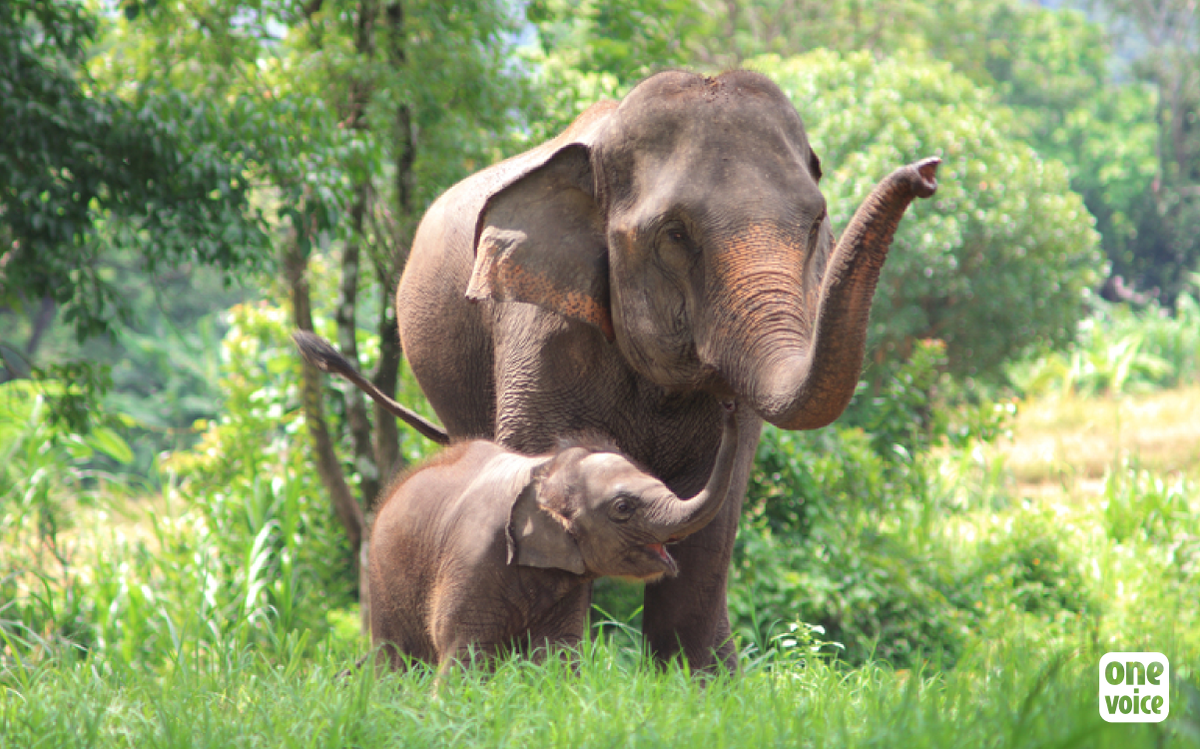

It's time to recognize the status of people and the rights of elephants
The first legal action of the Nonhuman Rights Project for elephant rights concerns the individual stories of Beulah, Karen, and Minnie: from the day that humans had snatched them from nature to the day they ended up in a traveling circus in Connecticut. But the procedure also concerns the centuries-old history of the possession of captive elephants. Here’s a summary, and how NhRP, with the help of One Voice who is leading the fight in France and working to change this.
For more than 200 years, Americans have held captive members of one of the most cognitive and emotionally complex animals: elephants.
In 1796, an elephant named Old Bet was imported from India to the United States, where it was purchased by Hackaliah Bailey, founder of Barnum & Bailey Circus. The main attraction, she will be transported across the country until her death, at 20, probably killed by a fanatic. At the time of her capture, she was two years old. She would have spent her days exploring India’s rainforests with other elephants, especially her mother, and then growing up and helping to ward off threats by assuming her responsibilities for the welfare of the herd.
Today, the life stories of nearly 300 captive elephants in the United States, and nearly 20,000 in the world, are not very different from those of Old Bet and the many other elephants who, faced with bullets and ankus, had no choice but to follow in her footsteps.
Elephants are not just objects
This is because elephants, like all non-human animals are not less legal “objects” than they were two decades after the signing of the Declaration of Independence. As elephant advocates have realized, the elephants’ own interests – their freedom in the first place – are not taken into account in the courts or in legislation, because currently, and for whatever reason, they have no legal rights. Under existing animal welfare laws, we can buy and sell them, deprive them of a social group, physically compel them to entertain us, transport them to any country to serve our interests, and expose them to concrete and steel enclosures that look nothing like their natural habitat.
The intelligence and sensitivity of elephants
Thanks, in particular to the long-term scientific study of the behaviour of elephants and their social groups, we know a great deal more about who they are: their self-awareness, problem solving skills and use of tools. They have their own identity, they remember the past and plan for the future, show empathy for other beings (not just other elephants), and mourn their dead – among other qualities and abilities. But our legal systems have not yet incorporated this level of knowledge we have of them.
An unprecedented action for elephants’ rights
On November 13th, the Nonhuman Rights Project filed the first-ever petition for a writ of Habeas Corpus for captive elephants. Our elephant clients are Beulah, Karen and Minnie, who have worked for decades in circuses and traveling fairs and are currently held captive by the Connecticut Commerford Zoo.
Armed with legal arguments and affidavits carefully crafted by prominent elephant scientists, we are asking the Connecticut common law courts to recognize the non-human legal personality of Beulah, Karen and Minnie and the fundamental right to freedom of as self-aware and autonomous beings and as such, to order their immediate release into a suitable sanctuary. The Performing Animal Welfare Society (PAWS), respected around the world, has already agreed to offer them a place in a sanctuary upon release.
Our depositors include:
- Lucy Bates (Honorary Researcher, School of Psychology and Neuroscience, University of St Andrews)
- Richard Byrne (Research Professor, School of Psychology and Neuroscience, Centre for Social Learning and Cognitive Development, University of St Andrews)
- Ed Stewart (President and Co-Founder, Performing Animal Welfare Society)
- Karen McComb (Professor of Animal Behaviour and Cognition, University of Sussex)
- Dr. Cynthia Moss, (Program and Trust Director, Amboseli Trust for Elephants)
- Joyce Poole (Co-Founder and Co-Director, Elephant Voices).
Added to the selection of affidavits is the video ethnography belonging to experts on wild elephants, to reinforce the injustice that deprives our clients of their physical freedom.
For the recognition of the fundamental rights of all elephants
Like Old Bet, Beulah, Karen and Minnie have spent most of their lives entertaining humans. But their stories must not end like hers. As potentially the first elephants to have legally recognized basic rights, they could even allow other elephants to follow in their footsteps – not in a circus tent or zoo, but in a sanctuary where their abilities and rights to live independently will be respected and encouraged.
One Voice is collaborating with the NonHuman Rights Project. This publication is a translation of Lauren Choplin’s article.